Whether its your lifetime dream you want to fulfill by climbing Mount Kenya or you are after a one day hiking adventure at Mount Longonot; mountaineering is an exhilarating sport to always enjoy. Check out our exclusive information on mountain climbing in Kenya, accommodation and packages below or Contact our mountain climbing expert to plan your climbing holiday today

Mountain Climbing is among the main attractions in Kenya, there are a couple of mountains and hills in Kenya; this includes Mt Kenya, Mt Elgon, Mt Longonot, Mt Suswa, Ngong Hills, Loroghi Hills, Western Highland, Shimba Hills and Taita Chyulu Hills among others. Mount Kenya is the most popular for mountain climbing, its the highest mountain in Kenya and the second highest in Africa, its located across the equator with a height of 5,199 m and a snow-capped peak.
Mountain climbing can be exciting and full of lifetime experience. However, one needs proper preparation and the right climbing gear; else it can be very dangerous especially if you are planning to get to the peak.
Once you decide on your Mountain climbing trip, then you need to start the preparation, you need at least three weeks fitness and high altitude training, and If you can afford it, join a mountain climbing school to learn the basic climbing skills, techniques and safety precautions. the fitness could include enrolling in a gym and concentrate on activities that strengthen the legs and your running power or try jogging, squatting, sit-ups and swimming.
Kenyan mountains have straight forward routes that require minimum climbing gear and they are less strenuous with well trained mountain climbing guides and potters that are hired to guide and assist you on the trip. With that in mind being fit is still paramount.
January to March and July through to September are said to be the warm and dry seasons, any time in this period could be the ideal time to plan for your mountain climbing holiday in Kenya.
Most people who are not accustomed to mountain climbing get mild altitude sickness; it can get fatal if not treated immediately. Altitude sickness is caused by the body not adapting fast enough to the reduced level of oxygen in the air due to the high altitude, the main symptoms are headache, nausea, decreased appetite, a stinging feeling in the toes and fingers and a slight swelling of ankles and fingers.
The mild altitude sickness are usually not serious and disappears within 48 hours, but it is good to inform the guides who can assess you and give you an appropriate advice. Most of the guides are well trained and can tell how serious is the sickness and what is the best action to take. It is also advised to walk in a group, it is easier to detect if a member is unwell. The best treatment for severe altitude sickness is to descent.
Our best advice is you visit your personal doctor or a traveling clinic, for the necessary vaccination. Make the appointments on time, because some vaccinations are taken in intervals and require some time.
Please note that if your country is not a member of the east African community, then you require an entry Visa; contact your local Kenyan embassy or consulate for detailed visa information.
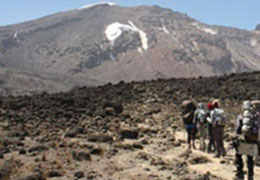
The Naro Moru route is a more straight forward route to climb Mount Kenya; it’s a 5 days /4 night’s itinerary that will take you through the beautiful sceneries of Mt Kenya. The hike will start at Mt Kenya National park main entrance to metro station, then to
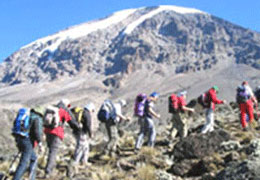
Sirimoni route is the most common route used to climb Mount Kenya, unless you prefer camping, it is not necessary on this route; accommodation is available in the mountain huts that are found in every stage throughout the hike. Although the route is reasonably good to get to
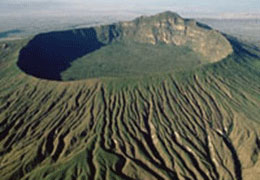
This a full day hiking trip at Mount Longonot; the tour begins by driving to Mount Longonot where you will spend the day hiking the volcanic mountain, once you are up on the hill, you will have a picnic lunch and brief rest as you enjoy the stunning
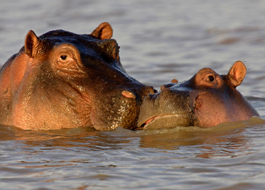
About Lake Baringo Lake Baringo is one of the two freshwater lakes along the Great Rift Valley; located in north-western Kenya and is the second largest lake in Kenya; with a surface area of about 130 square kilometers and surrounded by mountains rising to almost 3000 meters above the
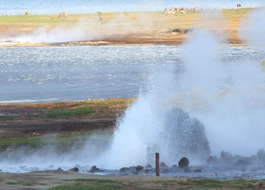
About Lake Bogoria Lake Bogoria is a saline shallow water lake, situated along the Great Rift Valley in northern parts of Kenya, about 25Km south of Lake Baringo. The lake is part of Lake Bogoria National Park, run by the local county government and is sometimes home to the
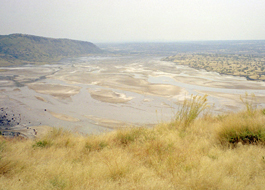
Lake Magadi Lake Magadi is a saline, alkaline lake, located along the Great Rift Valley in southern Kenya near the Namanga – Tanzania border, northeast of Lake Natron. The lake is approximately 100 square kilometers in size and 80% of the lake is covered by soda water, which evaporates
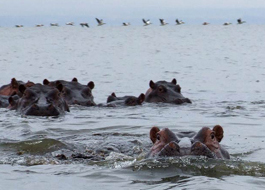
About Lake Naivasha Lake Naivasha is a beautiful freshwater lake located along the Great Rift Valley, North West of Nairobi. The lake is at the highest point on the Kenyan rift, set on an altitude of 1,884 meters above the sea level, a surface area between 140 to 180
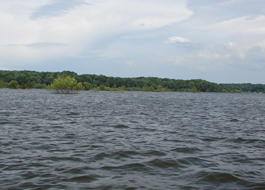
About Lake Victoria Lake Victoria is a huge lake located in east central Africa along the equator and is shared by three countries; namely Uganda, Kenya, and Tanzania. It is Africa's largest lake, with a surface area of 68,800 square kilometers and second largest freshwater lake in the world,
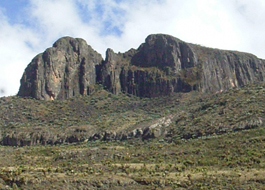
Mount Elgon Mount Elgon is an extinct volcanic mountain situated in western Kenya along the Kenya –Uganda border. The mountain has the largest volcanic crater in Africa; it is believed to be the oldest volcanic mountain erupting about 20 million years ago. Mount Elgon has a diameter of about
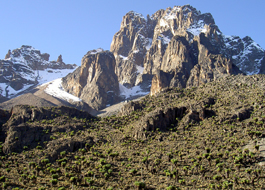
About Mount Kenya Mount Kenya is an ancient mountain, estimated to be over 2.6 million years old; it’s the highest mountain in Kenya, located in central Kenya about ,180 kilometers north of Nairobi. It’s an extinct volcanic mountain whose plug forms what is nowadays known as the peak. It
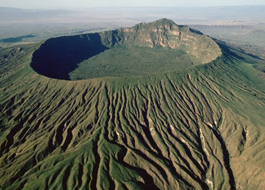
About Mount Longonot Mount longonot is a massive dormant volcanic mountain situated along the Great Rift Valley, southeast of Lake Naivasha and 90km from Nairobi. Longonot last erupted in the 1860s and has remained dormant since then; it has a height of 2,766m above sea level and has stunning
Once you are done with the basic training, then it comes the question of what to carry and the requirements; if you are intending to just climb once and don’t wish to do it again, economically it is wise to just hire out the items locally, mountain climbing in Kenya does not require sophisticated equipments, just the basic once.
It is always good to have some tips on how to make your Kenyan mountain climbing trip successful, a great trip comes as a result of good planning; once you have identified the mountain you intend to climb, you carefully need to find a good tour operator/guide with enough knowledge about the mountain. The tour operator/guide should advise you on the route that allows proper acclimatization, the route with great views and the route with the best chance to reach the summit. So be very selective on the tour operators and don’t be too cheap, below are some of our mountain climbing tips:-